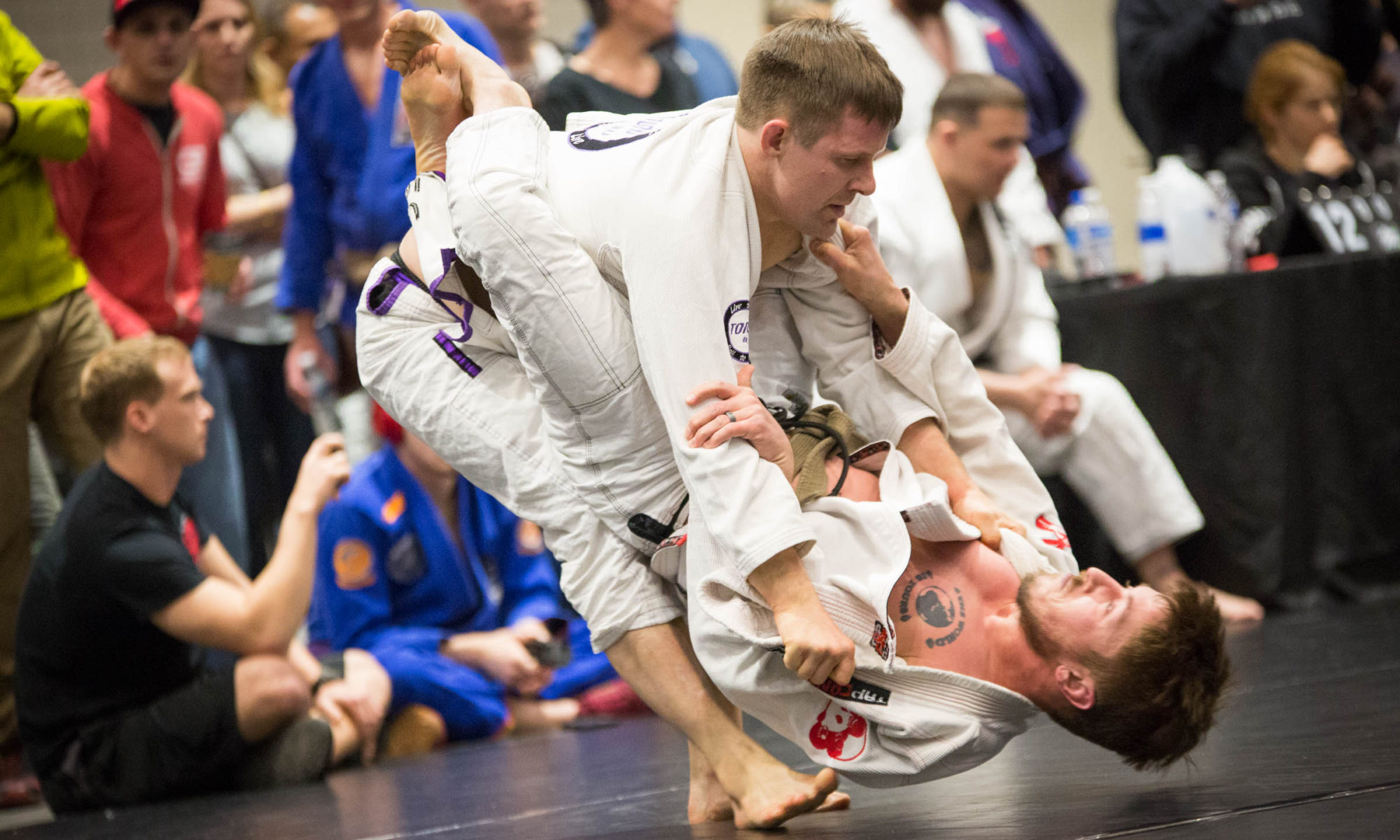Some of my training partners are competing for the first time at Toro BJJ Presents US Grappling Greensboro this weekend. This is great, and I’m proud of all of the people who are stepping on the mat to compete. Jiu-jitsu competition has real benefits for your training, as this article by Jake Whitfield shows.
Partially for my friends, and partially for other folks who will dip their toes into tournament waters in the future, I thought I’d put together some advice. When you’re getting ready for your first tournament, here are 10 things I think you should consider.
10. Registration
Seems like it goes without saying, but put some thought into what division you want to enter. Many tournament offer both gi and no-gi divisions, some offer age groups, and most offer “absolute” divisions where you can compete against anyone of any weight class. In general, I advise entering as many divisions as you can: you’re in this to learn jiu-jitsu, and the more matches you get, the more you’ll learn. Besides, you can always drop out if you’re exhausted after one or two divisions, but you can’t enter new divisions the day of the event.
9. Preparation
Not just physical preparation through training, either. That part goes without saying, and your instructor and teammates know what you’ll need to do in training to get ready. For your part, make sure you show up ready to compete. Get a good night’s sleep beforehand. Pack a bag full of healthy food, water and other fluids, and whatever gear you’ll need. You never know what the food options will be at the event, and it’s best to have healthy fruit between matches rather than a greasy piece of pizza.
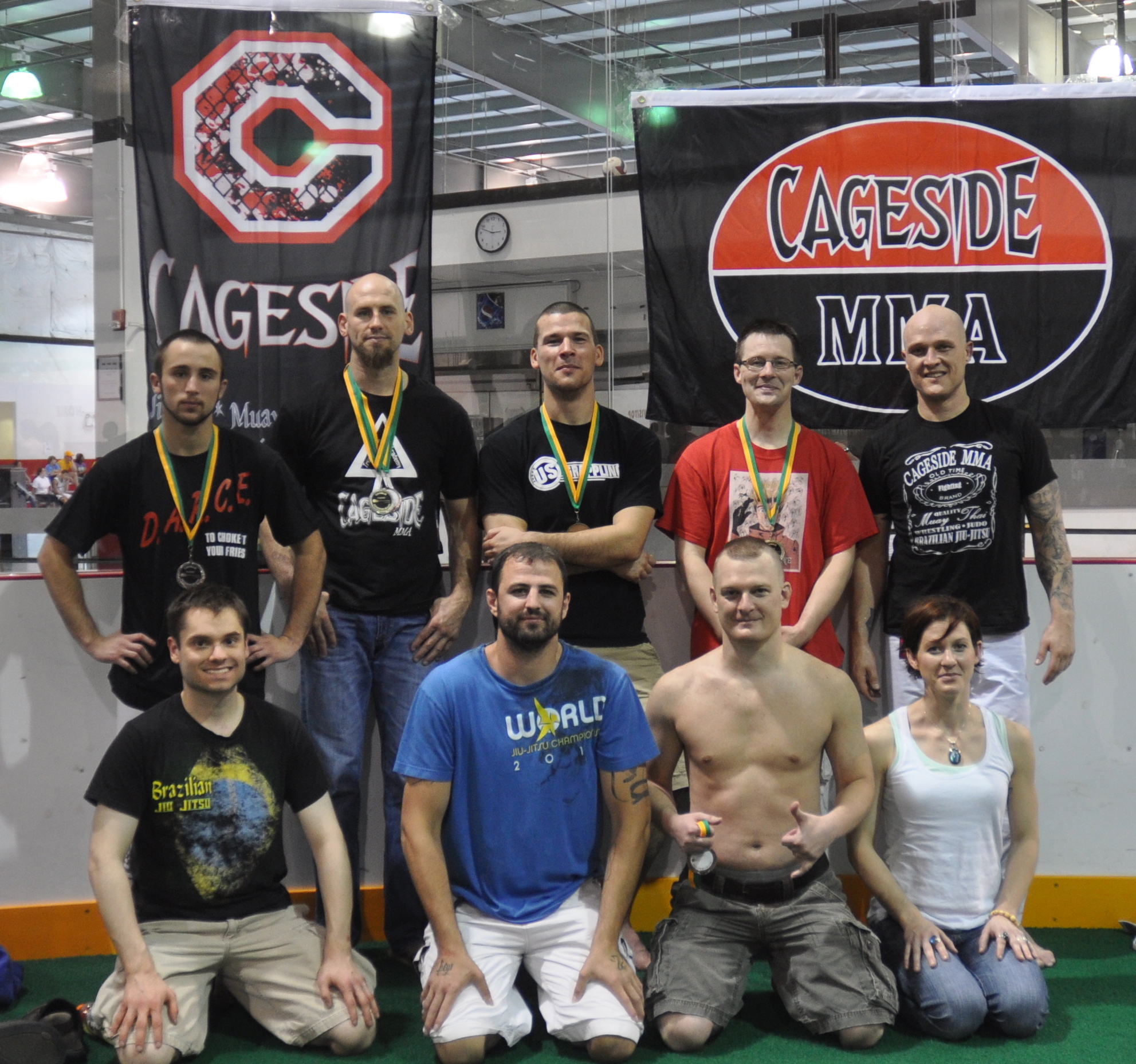
8. Goals
Maybe you want to win every match (and good luck with that!). Maybe you have a lot of experience competing in other things and you know you enjoy the challenge. Or maybe this is your first real athletic experience, and you just want to see what it’s like. Your goals for the tournament depend on your own background and training. So be clear with yourself about what you expect from the experience.
7. Survival
If this is your first tournament, you’re probably a white belt, and if you’re a white belt, your focus should be to survive first. From there you can advance to the other aspects of the game. Jiu-jitsu is a defensive art, and surviving is a victory! If we look at success as a pyramid, with survival at the base and submitting your opponent on top, you have to start at the beginning. You can’t achieve success without surviving, so be sure your defensive game is tight.
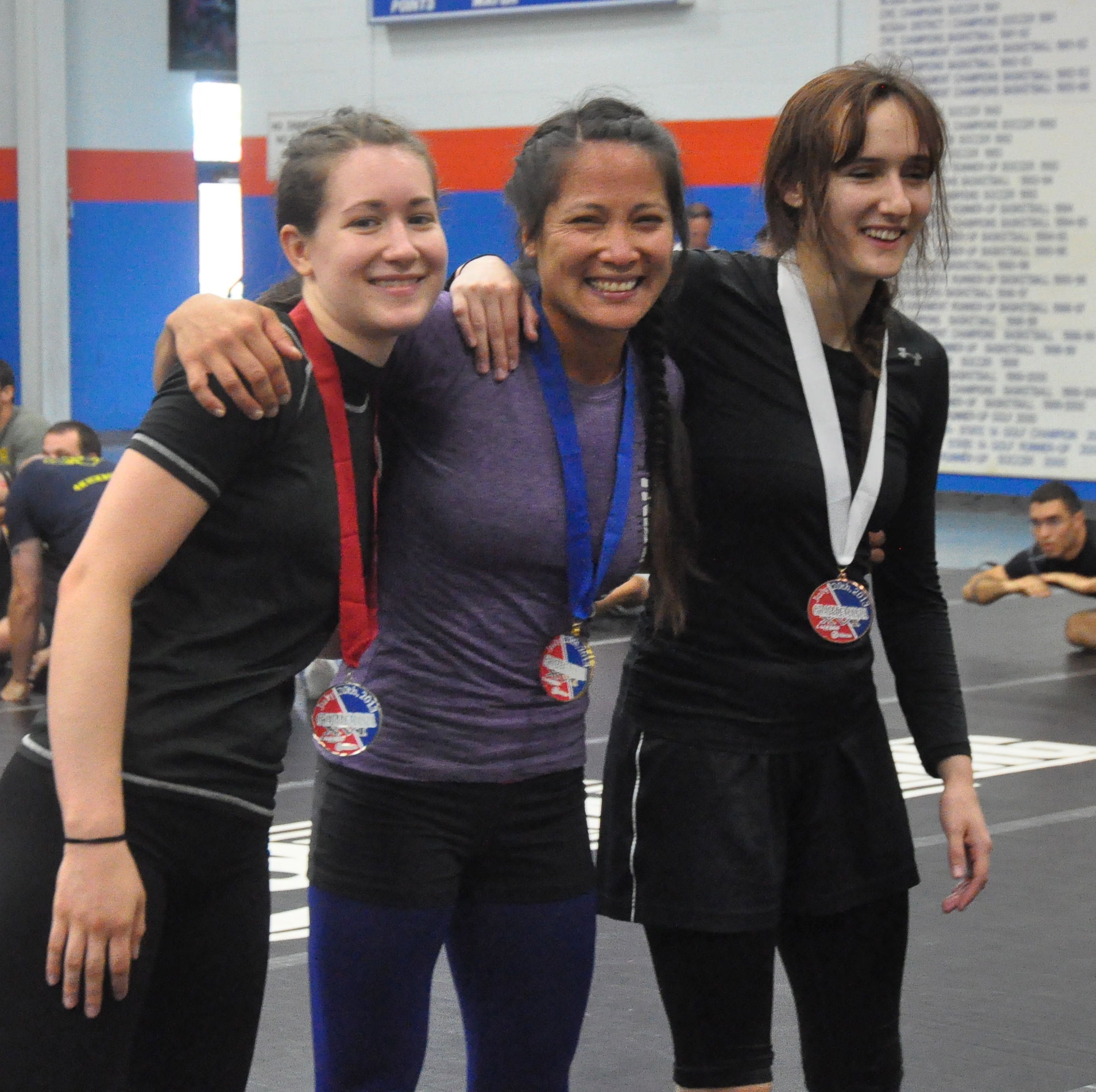
Most of the things I’ve listed so far are things I think that new competitors should think about and consider. The next few are specific techniques that work for me, and that I hope help you as well.
6. Best-Case Strategy
Have a plan for your match. While it’s unlikely that your match goes exactly the way you envision it, the very act of visualization helps. Multiple studies have shown that visualization improves athletic performance, and the practice of thinking through how you want your matches to go only helps remind you of the techniques you want to use.
For example, my first tournament I planned to do this: take my opponent down with a single leg; open and pass his guard with a stack pass; control him in side control; pass to mount using a knee drive; try to collar choke him from mount, and either finish, or force him to give me his back; and finally finish with a rear naked choke.
Exactly zero of my matches went this way, but I firmly believe that the tournament went better because I had a plan in place. What’s your plan in the ideal world? Even if we don’t live in the ideal world, you should be able to answer this question.
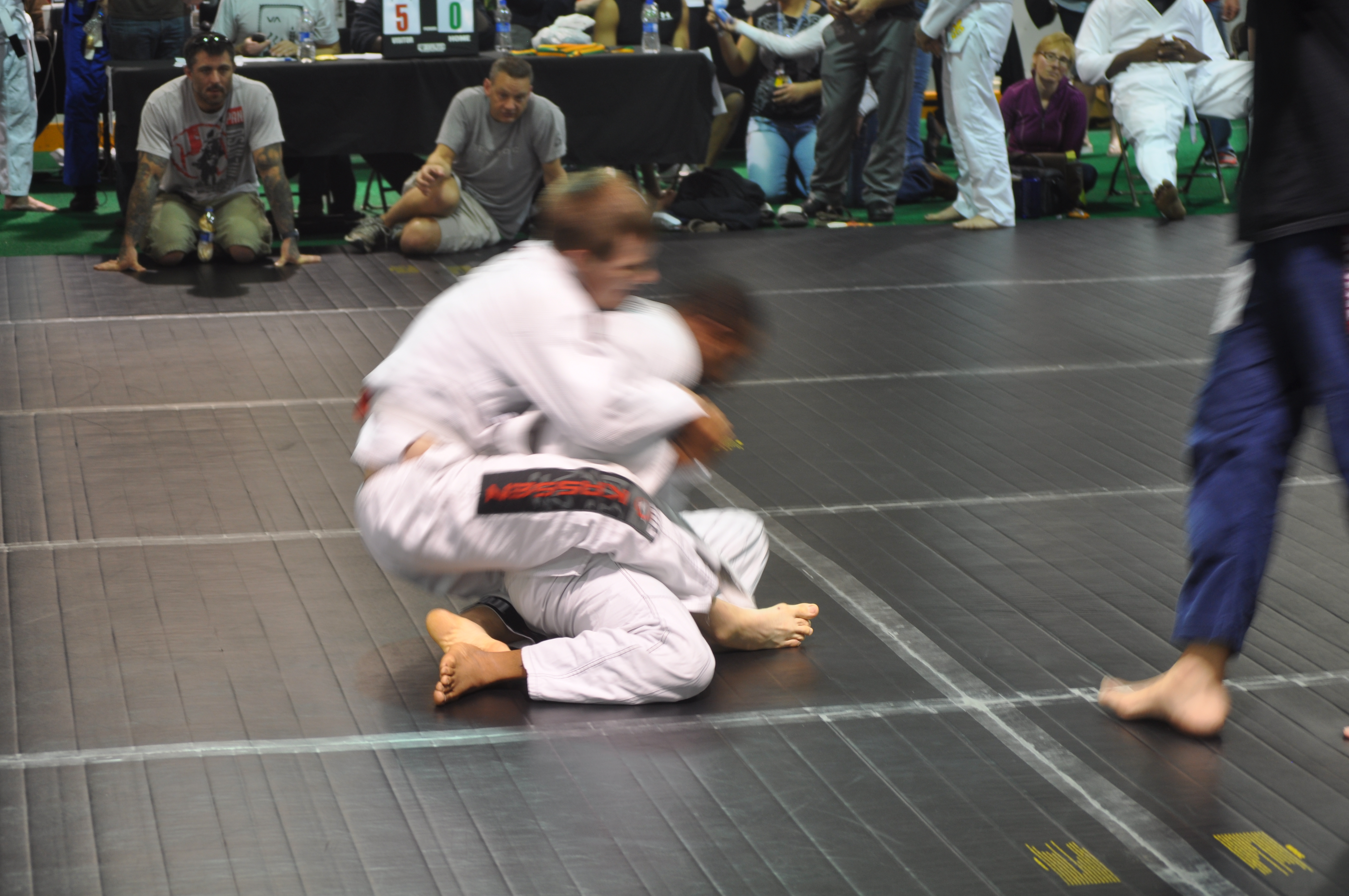
5. Techniques For Each Major Position
Things go wrong. In the middle of life we lose a toe or we discover our girlfriend loves Nickelback. Jiu-jitsu matches are the same. So maybe you take your opponent down as you planned, but then she hip bump sweeps you, and whoops! You’re under mount.
Before my first tournament my goal was to have at least one, ideally two techniques that I knew from each major position. That way, even if I couldn’t escape the mount of a more skilled opponent, at least I wouldn’t feel like a flailing imbecile.
Because I’m proudly a nerd, I make spreadsheets of all the techniques I’ve learned broken down by position. This helps tell me what to drill, what I know fairly well and what I need to work on. For your first tournament, I’d suggest you get at least one or two good back escapes; mount escapes; side control escapes; guard sweeps; guard submissions; guard opens and passes; and submissions from the top. Again, focus on the defensive concepts and build upward.
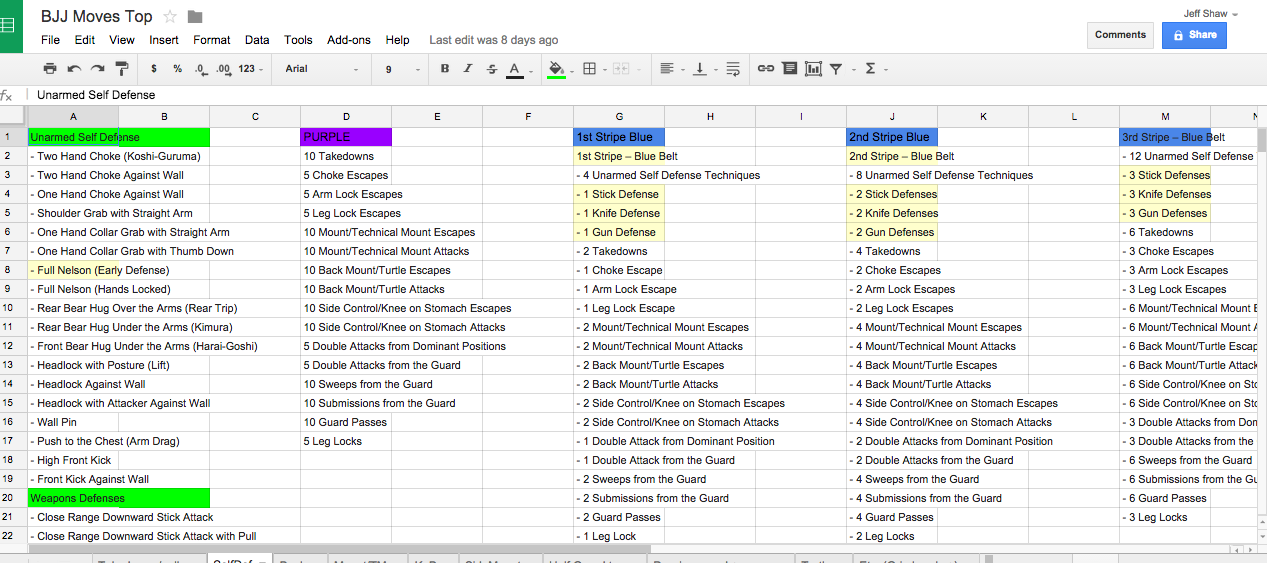
4. Perspective
You’re going to be training a long time, and whatever results you get are just a small blip on that larger radar screen. Saulo Ribeiro is a legend, and he never won a tournament until he got his black belt. Don’t plan your UFC career if you win, and relax if you lose. Either way, try to improve next time.
3. Down Time
You should know that many tournaments will have you waiting for a long time before your division. This is especially true of white belts, who usually go last. This isn’t something you really plan for, unless you want to bring an MP3 player or a book, but something to be aware of.
2. Learning
Whatever happens, it’s not a wasted experience if you learn something — and you will. Consider having a friend videotape your matches, or at least take photographs. I’ve had perhaps 100 tournament matches, and was able to reconstruct what happened in most of them based on video and pictures. This will be very helpful to you down the road, so don’t miss that opportunity.
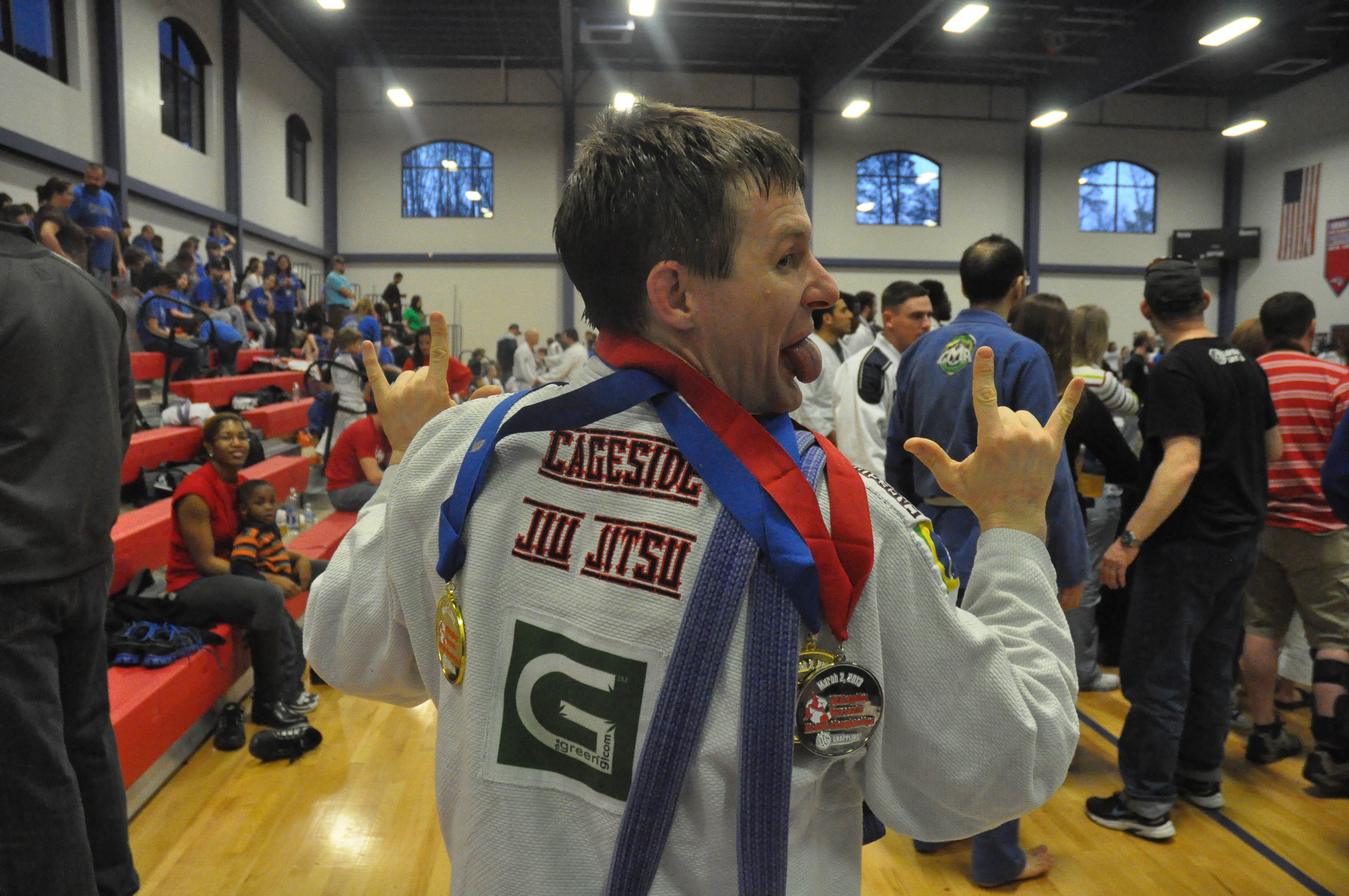
And the number one thing to think about before your first tournament is …
1. Nothing.
Just go out there and do it. Don’t stress yourself out too much: this is what you do for fun. As a wise man with ties to Durham once said: “Don’t think too much. It’ll only hurt the ball club.”
Good luck, have fun, stay safe, and go train.
